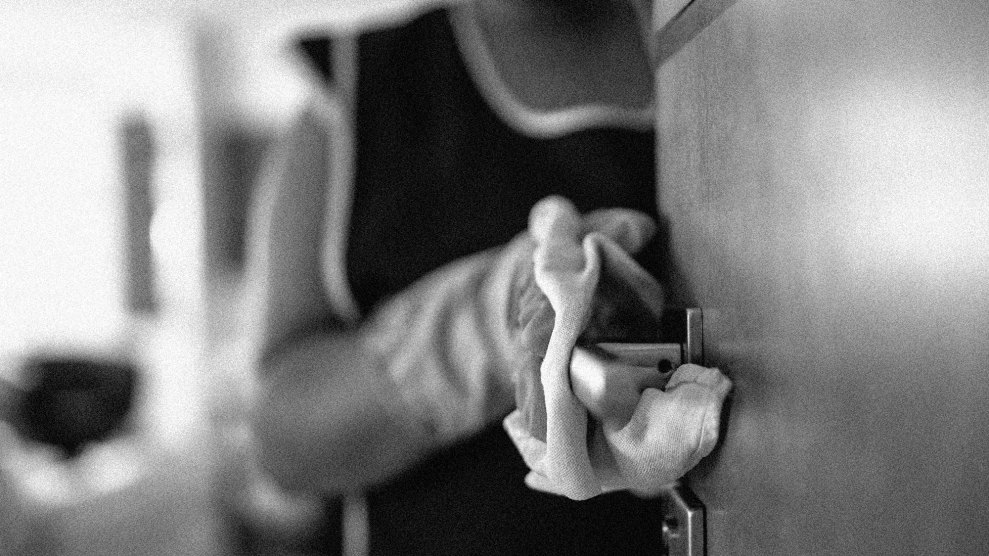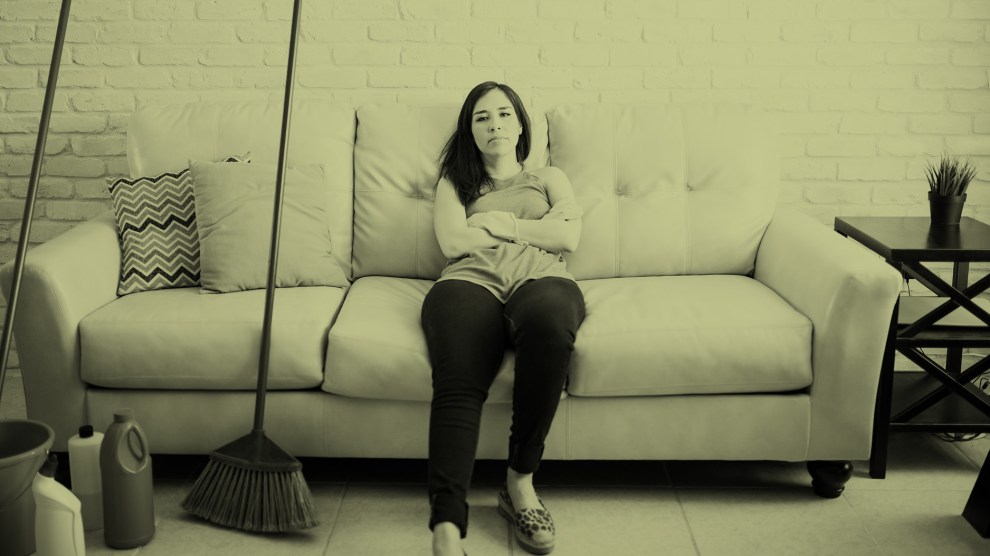
I’m from the state of Puebla in Mexico. I’ve lived in the United States for 20 years and have three kids. Aside from one who’s 16, they’re all adults now. I’m 50 years old.
It can be hard for me to find work because I’m undocumented. Sometimes places will turn you away because you don’t have the right paperwork. So, for the past eight years, I’ve been cleaning peoples’ homes. I get work through friends who also clean homes.
At the start of the pandemic, most of my clients were paying me $11 an hour. When I clean it’s usually just me and the wife in the apartment. I wore a mask, but they didn’t. I’d always walk to work when I could because it was safer, but sometimes I’d have to take the bus. It was scary. I was worried about infecting my son.
I didn’t realize it at the time, but I cleaned one apartment while the husband was quarantined in his room with COVID. I only found out about a month later when the wife told me her husband had tested positive. She was bringing food to his room the day he was sick. Luckily, I never caught COVID.
I needed to keep working because everyone else I live with lost their jobs during the pandemic. If I didn’t work, how were we going to pay for food?
In September, I learned about the Worker’s Justice Project because they were giving away food, masks, and hand sanitizer. They told me that employers aren’t allowed to threaten or intimidate their workers, that they can’t call immigration on you. I also found out that the minimum wage here is $15 an hour. I was surprised. There were much more protections than I realized.
After that, I started asking my clients for a raise. On weekends, I sometimes worked for an Italian woman and her kids. When I started with her a decade ago, I got paid $5 an hour. Eventually, that went up to $9. In October, she told me I wasn’t entitled to the minimum wage. I understood her to be saying that it was because I don’t have papers.
I told her I wasn’t going to work for $9 anymore. I said I knew my rights, that what she was paying me wasn’t fair, and that the minimum wage is $15. She insisted I didn’t have a right to ask for a raise and claimed that she also got paid less than $15 at the pharmacy she worked at.
It got to the point where I said that if she wasn’t going to give me a raise, I wasn’t going to work for her anymore. I showed her a document from the Worker’s Justice Project that explained what my rights are. I said I’m a member of this organization and they’re backing me up. I thanked her for the work she’d given me in the past but made clear that I was done. After she saw the card from the Worker’s Justice Project, she agreed to pay me $15.
I told the families I worked for on Wednesdays and Thursdays that I was willing to work for $13 an hour, but not $11. They said that was fine. But then they paid me $11 again. They backed out and said they couldn’t afford it. I told them I wouldn’t be working for them until they gave me a raise. They ended up firing me. This was November.
I’d worked for one of the families for six years and the other for three. During those six years, I’d gone from $10 an hour to $11. I’ve found someone for Wednesdays who pays $15, but I still don’t have anyone for Thursdays.
I showed the rest of my clients the card. They said $15 was no problem. I assume they knew what the minimum wage was but were paying me less because they could. People know that many immigrants don’t know anything about the rules here.
All my friends who do cleaning were making $12 or $13 before the pandemic, too. None of them was getting $15. They didn’t know about the minimum wage either. Now there are making $15 because they’ve asked for raises, too. If I hadn’t learned about my rights, I’d still be making what I was before. Nothing would have changed.
This story is part of our Bad Bosses project, a reported collection of accounts from workers about their terrible bosses and the system that creates them. You can read more about the entire project and find every story here. Annotations—highlighted throughout—can be clicked for further context and comment from other parties. Got your own bad boss story? Send us an email.













